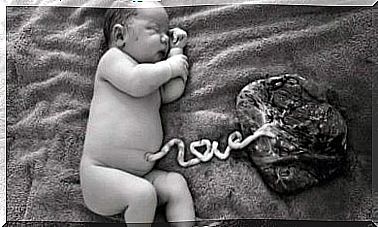How To Detect A Specific Learning Disability

Specific learning disability can appear confusing to parents. That is, we could think that it is some type of disability of the child because he does not make an effort, but in reality it is a neurobiological problem.
Specific learning difficulties are associated with the acquisition and management of literacy and mathematics processes. They are included in the DSM-V, that is, the psychiatric and psychological diagnostic manual, and are perfectly specified by the World Health Organization.
But these problems are difficult to detect. It is due to the fact that they are found in children who do not present specific and serious neuronal deficits, hence early diagnosis is important, since, in many cases, they can be corrected or alleviated, since they are not due to visual, auditory, emotional alterations or mental of great depth.
The child with a specific learning disability
The child with specific learning difficulties is actually a boy with totally normal intelligence. The problem is reflected in certain aspects of their academic level, but they are punctual and detectable.

It is important to analyze each child so that, in case we find problems with poor performance or school failure, we can reveal if these specific difficulties could be behind this problem.
In this case, it is necessary to study, in particular, the areas of mathematics, writing and reading that, in case of showing delay, could be causing the low performance of the child in their general education.
If not detected in time, the child can develop various types of problems, such as social exclusion, lack of adequate socialization, emotional distortions, demotivation, depression, low self-esteem, etc.
The importance of early detection
Early detection and rapid intervention will be key at this point so that, working with the child and their family, school and social context, the appropriate solutions to the problem can be sought.
Let us also remember that the necessary adaptations must be made in the school context. Thus, the student can be guided by accompanying him throughout the process.
Early detection is very important, for example, with problems such as dyslexia, which is usually one of the most common to present and one that causes the most frustration in the student and a high level of school failure, since the child does not learn in equal conditions despite the fact that his intelligence is not inferior to that of any partner.
Therefore, family members and professionals must be attentive to specific signs that these children present. These are usually:
- Slow learning at reading level.
- Difficulty in understanding texts.
- Slow learning to write.
- Redaction with spelling mistakes, even in copied texts.
- Disability and difficulty in learning second languages.
Other aspects to consider
Let us now look at other aspects in which all the actors included in this type of early detection should be fixed. Take note:

- See if children reverse letters and numbers, even when copying. Or if they write them weird.
- Check for grammatical errors in written and verbal sentences.
- Find out if he has difficulty beginning sentences with a capital letter and finishing them on the dot.
- Observe their spelling problems.
- See if he has a hard time memorizing basic things like the names of the days of the week.
- Check for problems in basic math facts, like addition and subtraction.
- Analyze their mental math problems.
- See if he has trouble counting down.
- Discover their problems to learn series and symbols, such as multiplication tables.
- See if he has trouble choosing the correct operations to solve math problems.
- See if he has trouble following directions.
- Find out if your short-term memory is poorly managed.
- Observe if he has speech problems, to perceive space and distances, if he confuses left and right or if he does not understand musical languages and rhythms well.
- Study if the child shows disinterest in school subjects and that causes poor performance and negative grades.
About the specific learning difficulty
It is important to detect a specific learning disability early to avoid problems of low self-esteem and negative self-perception of the child. Remember that their intelligence is normal and their problems have nothing to do with disability, laziness or lack of effort.










